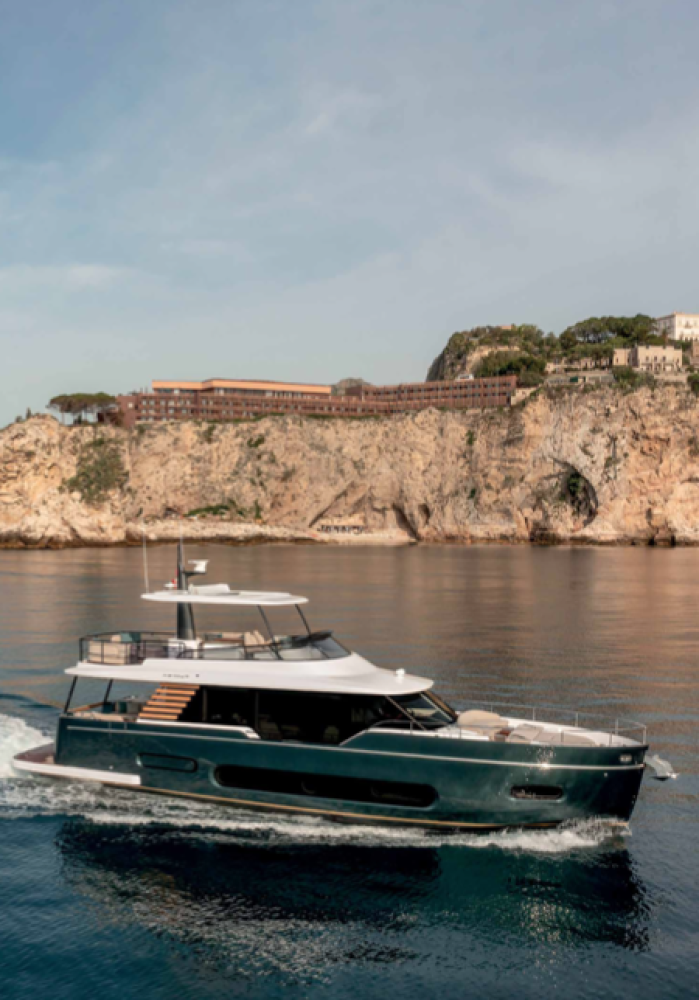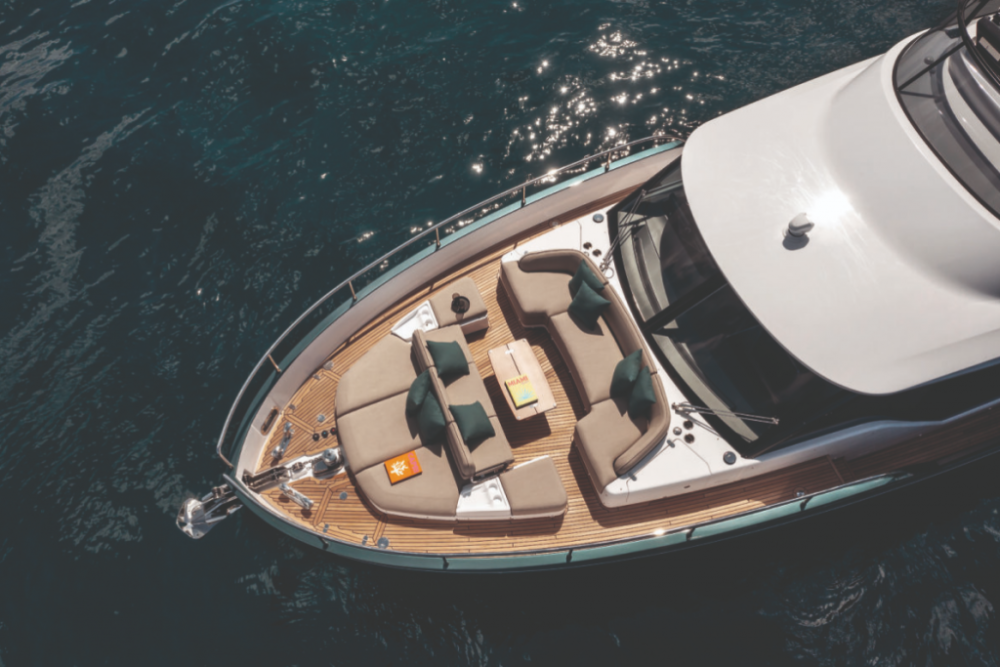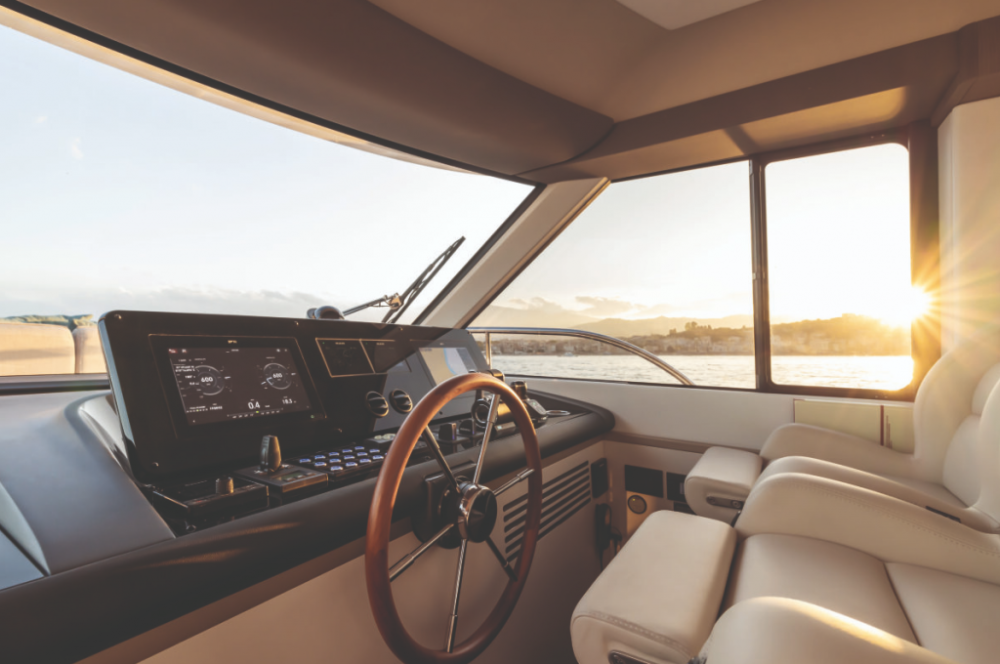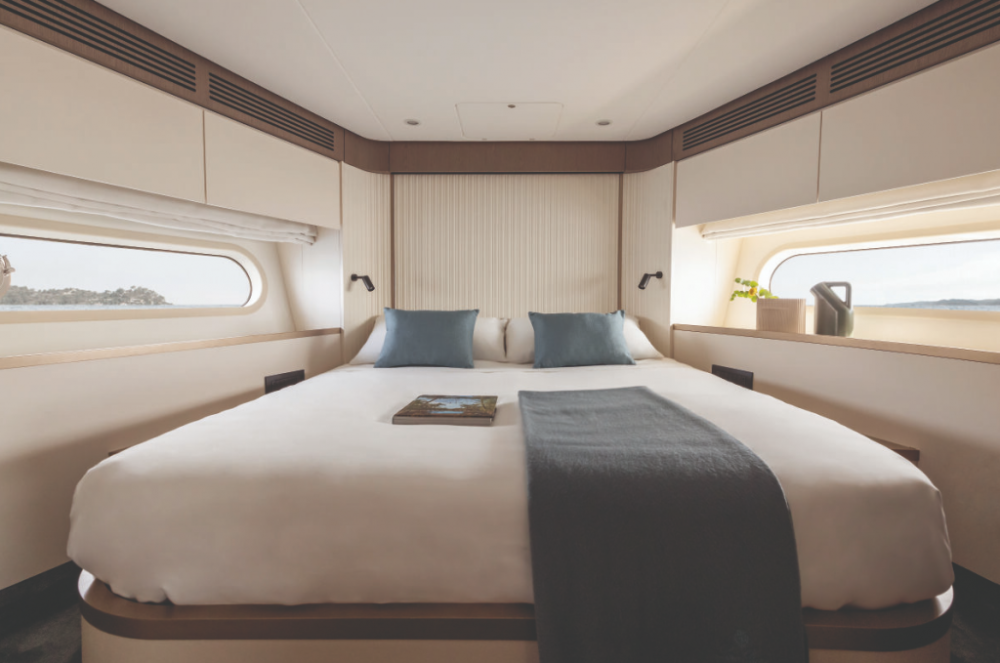Italian luxury yacht builder Azimut-Benetti Group is furthering its efforts to deliver a conscious sea experience with two world premieres, a biofuel partnership and a collaboration with industry leaders for the launch of a more expansive carbon emissions index. Stephenie Gee reports from the 2023 Cannes Yachting Festival

In the grand scheme of the universe, 17 years is barely a blip. But in the world of sustainable yachting, it can feel like a lifetime. Seventeen years ago, in 2006, when hardly anyone was talking about carbon footprints, or the toxicity of anti-fouling paints, or how the demand for teak – known as the “king of woods”, its aesthetics and longevity represent a visceral part of the luxury yachting experience – contributes to deforestation and environmental degradation, or the dozens of other inconvenient truths, Benetti under the leadership of Paolo Vitelli, the young Italian owner of Azimut who in 1985 acquired the Benetti shipyard, launched the world’s first diesel-electric yacht, the 65m Ambrosia.
Fast-forward to now, green is the way to be and Azimut-Benetti Group continues to lead the charge in the yachting world on “conscious” innovation without compromising luxury. “We use the word ‘conscious’ instead of sustainability. Why? Twenty years we’ve been committed to this path towards reducing emissions. It was my dad who made the very first diesel-electric boat and we’ve also pioneered in many aspects,” Giovanna Vitelli, the former vice president of the group who took the helm from her father as chair just this past March, tells me between meetings at the Cannes Yachting Festival.
Besides the first hybrid yacht, milestones along the group’s green path include the first fuel cell tested on board and a fleet of low-emission yachts that promise a reduction of up to 30% in carbon emissions through a combination, Vitelli says, of the extensive use of carbon fibre – a material whose production processes have been internalised – over fibreglass to reduce the weight of the superstructure, a hydrodynamic hull design and alternative propulsion systems like pod drives.

“But these are prototypes. It’s technology you need to pioneer so that it’s ready when the world is mature for it. But there is a today and there is a tomorrow. Today, the best we can do is use the state-of-the-art technology we have tested in the past. But that doesn’t fully solve the problem. That’s why we don’t talk about sustainable products; we talk about conscious products. Most of the industry is only talking about the second part: tomorrow. It’s a fascinating topic – hydrogen, methanol – but it’s very far away. We want to always keep these two parallel paths: the best we can do today, while keeping our full commitment and attention on what will be the technology tomorrow.”
The new Magellano 60, a crossover designed for long cruises that made its debut at this year’s festival alongside the new Verve 48, is that yacht for today. On a sunny Tuesday morning, the appeal of the new 60-footer goes beyond its timeless aesthetic: the same clean, elegant lines of the exterior iconic to the series evolve into more contemporary traits with edges that define the contours of the surfaces at the hands of Ken Freivokh (the same who designed the early Magellano models); while interiors are a riot of light and airiness, a manifestation of Azimut’s drive for greater contact with nature. Equipped with a highly efficient Dual Mode semi-planing hull – which enables cruising at both low and high speeds (the maximum is 26 knots) in total comfort by attenuating the impact of the waves and optimising consumption and emissions – and as the first voyage to be powered by HVOlution, a biofuel produced by Eni Sustainable Mobility in their Venice and Gela biorefineries with 100% HVO (hydrotreated vegetable oil), her beauty lies in the technological advancements that fully represent the value of consciousness for Azimut.

“We are the very first shipyard to have an agreement with Eni for the use of biofuels, in particular HVO. So with all our future trials, tests and activities we do, we are committed to use HVOlution,” says Vitelli. “Which is a major thing because this fuel together with all the other elements I mentioned allows for a reduction in emissions of more than 80%. It’s a significant target; much higher than the one the IMO [International Maritime Organization] set, which is a reduction of 40% by 2030.”
The numbers are impressive, but exactly how impressive? For decades, the group has made strides to lessen the ecological footprint of its yachts through innovative technologies. But in a time when “greenwashing” is rife, when “sustainability” no longer means much and when consumers have been trained to shop their way to a healthier planet, what is paramount is quantifying that impact.
Also see: A dream drive in the Maserati GranTurismo
“There’s this idea that this is an industry that is not taking care of the topic; that is behind. That’s not true,” Vitelli says. “The research and achievements are here, but there are no measurements or data for the public. If you want to buy a car, you can go online and find details of its consumption, litres per mile… When you buy a washing machine, there is an energy rating scheme. And with that information, you can compare products. But in the boating industry, it’s still very subjective. There is no, say, official guidance as to under what conditions a sea trial should take place. So, what we’re trying to do is to push for a system that is applicable to all yachts – to make yachts comparable and this industry a bit more professional.”

From this awareness comes the group’s collaboration with Lloyd’s Register, one of the leading classification bodies in the marine sector, to expand the scope of Superyacht Eco Association’s SEA Index – a benchmark first launched in 2020 to assess the carbon impact of 40-plus-metre yachts – to include yachts under 24 metres. Lloyd’s, based on tests carried out with Azimut yachts and a database integrated with the shipyard’s findings, developed a comparison index covering all the essential criteria, including CO2 emissions in relation to boat volume and the reference speed, to become a point of reference for owners, producers, technicians and specialists in the sector.
It also lays the groundwork for inaugurating a new, more conscious phase in the industry’s approach to reducing environmental impact. Azimut will certify, progressively, all new boats with the aim of making consumption and emissions data available for consultation. Among the first models involved in the programme are the upcoming Seadeck 9 and Grande 30M. These will be yachts that whisper luxury; relax those aboard, inducing a remarkable feeling of calm and a desire, quite simply, to have a thoroughly good time; and are kind to our planet. That, surely, is the true art of creating a perfect yacht.






